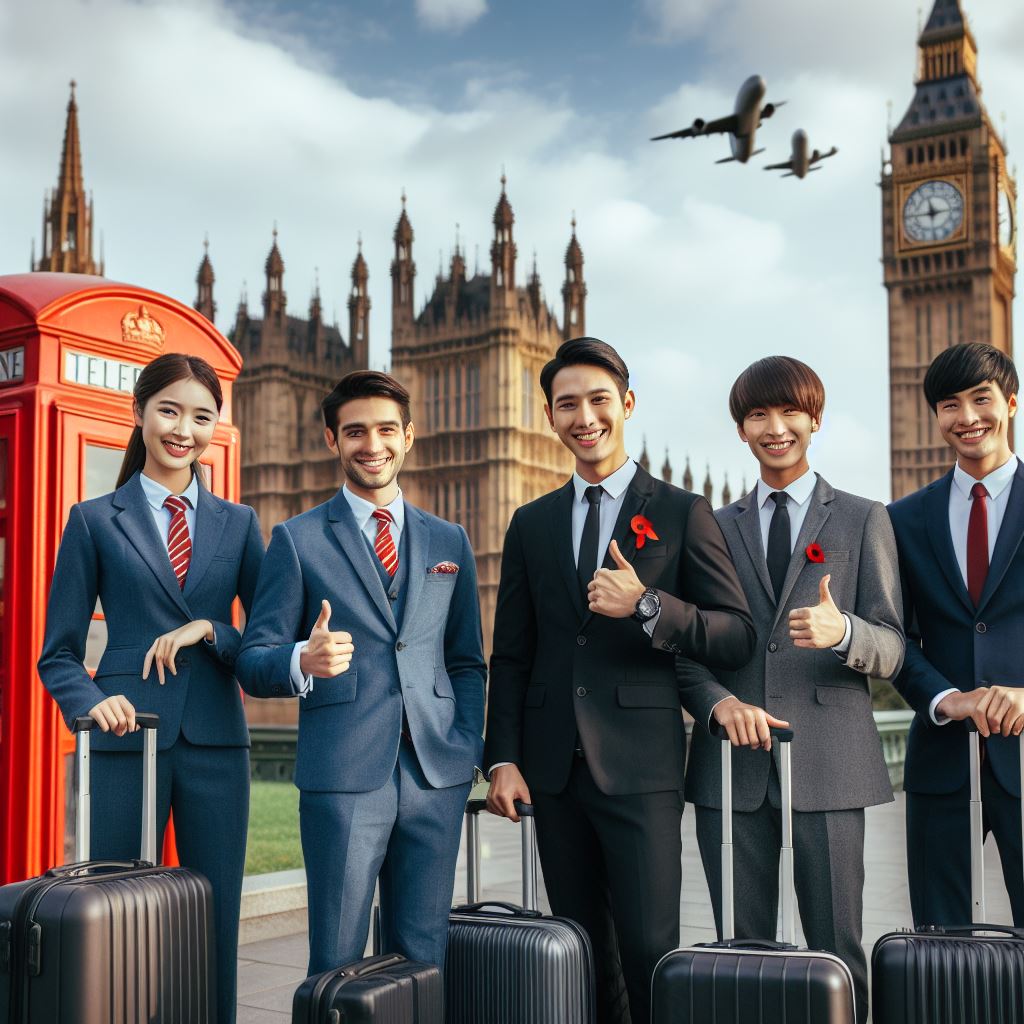Introduction
Cultural sensitivity refers to being aware and respectful of the customs, traditions, and beliefs of different cultures.
It plays a crucial role in travel planning as it promotes a deeper understanding and connection with local communities.
This blog post explores the significance of cultural sensitivity in travel planning and provides tips on how to be culturally sensitive when organizing a trip.
Understanding Cultural Sensitivity
Cultural sensitivity entails acknowledging and appreciating the diversity of cultural practices worldwide.
Why Cultural Sensitivity Matters in Travel Planning
Cultural sensitivity in travel planning fosters mutual respect, cultural exchange, and sustainable tourism practices.
Thesis Statement
This blog post delves into the importance of cultural sensitivity in travel planning and offers practical advice on how to be culturally sensitive throughout the trip.
Tips for Culturally Sensitive Travel Planning
- Research and educate yourself about the customs, traditions, and etiquette of the destination.
- Learn a few basic phrases in the local language to show respect and build connections.
- Dress modestly and appropriately, adhering to the cultural norms of the host country.
- Be mindful of cultural differences in non-verbal communication, such as gestures and personal space.
- Respect religious sites and rituals by following the rules and guidelines set by the local community.
- Support local businesses, artisans, and craftspeople to contribute positively to the local economy.
- Engage in cultural activities and experiences, such as local food tastings, festivals, or traditional performances.
- Interact with locals in a polite and open-minded manner, being aware of potential cultural misunderstandings.
- Leave the environment as you found it, respecting nature and cultural heritage sites.
- Reflect on your own cultural biases and be open to learning from different perspectives.
By practicing cultural sensitivity in travel planning, we can enhance our travel experiences, foster cross-cultural understanding, and contribute to the well-being of local communities and environments.
Embracing cultural diversity enriches both the traveler and the destination.
Understanding Cultural Sensitivity in Travel Planning
Travel planning is an exciting opportunity to explore new destinations and immerse oneself in different cultures.
However, it is crucial to approach this process with cultural sensitivity in mind.
By recognizing and respecting cultural differences, avoiding stereotypes and generalizations, valuing diversity, and promoting cultural exchange and understanding, travelers can have a more enriching and respectful experience.
Recognizing and respecting cultural differences is imperative when planning a trip.
Cultural norms, traditions, and customs vary from one place to another.
What may be acceptable in one culture could be considered offensive in another.
It is essential to research and understand these differences to ensure respectful behavior during the trip.
Avoiding stereotypes and generalizations is essential in maintaining cultural sensitivity.
Stereotypes oversimplify and often perpetuate harmful misconceptions about a particular culture or group of people.
It is crucial to approach each destination with an open mind and not make assumptions based on preconceived notions.
Valuing diversity is another vital aspect of cultural sensitivity in travel planning.
Each culture has its own unique beauty, perspectives, and experiences to offer.
Embracing diversity allows travelers to appreciate and learn from various cultures, fostering mutual respect and understanding.
Promoting cultural exchange and understanding should be an inherent part of travel planning.
Engaging with locals, participating in cultural events, and supporting local businesses can help travelers gain a deeper appreciation of the destination’s culture.
Interacting with locals also provides an opportunity to educate oneself and break down cultural barriers.
Practical tips to ensure cultural sensitivity in travel planning
- Research and educate yourself about the culture, customs, and traditions of the destination you plan to visit.
- Be aware of and respect local etiquette, such as dress codes or behavior in sacred places.
- Be mindful of your language and avoid using offensive or derogatory terms.
- Adapt to local customs and practices, such as greeting or dining habits.
- Be open-minded and embrace new experiences without judgment or prejudice.
- Ask for permission before taking photos of individuals, religious sites, or cultural artifacts.
- Support local businesses and artisans, contributing positively to the local economy.
- Engage in respectful conversations and listen to locals’ perspectives and experiences.
- Share your own culture respectfully, fostering exchange and understanding.
- Reflect on your own biases and challenge any stereotypes or misconceptions you may hold.
By considering these elements and following the recommended guidelines, travelers can contribute to a more culturally sensitive and enriching experience.
Cultural sensitivity in travel planning promotes open-mindedness, respect, and a deeper understanding of the world’s diverse cultures.
Ultimately, embracing cultural differences leads to more meaningful connections and a more fulfilling travel experience for both the traveler and the local community.
So, before embarking on your next adventure, remember to be culturally sensitive and approach travel with an open heart and mind.
Read: Waitstaff vs Chef: The UK Restaurant Dynamic
Benefits of Cultural Sensitivity in Travel Planning
Enhancing the travel experience for both the traveler and the local community
When planning a trip, it is important to consider cultural sensitivity in order to maximize the benefits of the travel experience.
By being culturally sensitive, both the traveler and the local community can enjoy a more enriching interaction.
Minimizing cultural misunderstandings and conflicts that may arise during travel
Cultural sensitivity helps minimize misunderstandings and conflicts that may arise from differences in customs, traditions, and social norms.
By understanding and respecting local practices, travelers are less likely to unintentionally offend or disrupt the local culture.
Fostering mutual respect and appreciation between travelers and the local culture
Moreover, cultural sensitivity fosters mutual respect and appreciation.
By showing a genuine interest in the local culture, travelers can engage with locals on a deeper level, creating meaningful connections and building bridges of understanding.
This not only enhances the travel experience but also promotes positive interactions and lasting memories.
Personalized UK Career Consulting
Receive tailored career guidance designed just for you. Get actionable steps and expert support to boost your career in 1-3 days. Take control of your career now.
Get StartedContributing to sustainable tourism practices that protect cultural heritage and support local economies
Furthermore, practicing cultural sensitivity contributes to sustainable tourism practices.
Sustainable tourism aims to protect natural and cultural heritage while supporting local communities and economies.
By being culturally sensitive, travelers can contribute to the preservation of cultural traditions, ensuring their continuity for future generations to enjoy.
In addition, cultural sensitivity in travel planning helps promote respect for diversity.
Each culture has its own unique values and beliefs, and by being open-minded and receptive to different ways of life, travelers can learn to appreciate and celebrate the richness of human diversity.
One benefit of cultural sensitivity is the opportunity to partake in authentic experiences.
By immersing oneself in the local culture, travelers can go beyond the tourist attractions and discover hidden gems that are meaningful to the locals.
This not only enriches the travel experience but also supports local businesses and communities.
Moreover, cultural sensitivity in travel planning allows for a deeper understanding of the local context.
Travelers who take the time to learn about the history, customs, and traditions of the destination gain a deeper appreciation for the place they are visiting.
This knowledge can enhance their overall travel experience and allow them to connect more meaningfully with the local community.
In review, cultural sensitivity is of utmost importance in travel planning.
It not only enhances the travel experience for both the traveler and the local community but also minimizes conflicts, fosters mutual respect, and contributes to sustainable tourism practices.
By being culturally sensitive, travelers can make a positive impact and create memorable experiences that go beyond superficial tourism.
Read: Interview with a UK Waitstaff Veteran: Insights
Tips for Being Culturally Sensitive in Travel Planning
When it comes to travel planning, it’s important to not only focus on the logistics of your trip but also be mindful of cultural sensitivity.
By respecting and embracing the local culture, customs, and traditions, you can enhance your travel experience and make a positive impact on the communities you visit.
Here are some tips to help you be culturally sensitive in your travel planning:
Conducting research on the destination’s culture, customs, and traditions
- Before you travel, take some time to research and familiarize yourself with the culture, customs, and traditions of your destination.
- Understanding the local practices will help you navigate the country better and avoid unintentional cultural faux pas.
Learning basic phrases in the local language
- While you don’t need to be fluent, learning a few basic phrases in the local language shows respect and can go a long way in breaking the ice.
- Locals appreciate the effort, and it can make communication easier and more meaningful during your travels.
Dressing appropriately and respecting local norms
- When visiting a foreign country, it’s important to dress modestly and respect the local customs and norms.
- What may be acceptable in your home country might not be well-received in other cultures, so dress appropriately to show respect.
Adapting to local customs and traditions
- When you’re in a different country, be open to embracing and participating in local customs and traditions.
- Whether it’s a festival or a cultural ceremony, immersing yourself in the local way of life can be a transformative experience.
Being mindful of social etiquette
- Every culture has its own set of social etiquettes, so it’s crucial to be aware and respectful of them.
- From greetings to table manners, paying attention to these subtle details can make a significant difference in how you’re perceived.
Supporting local businesses and communities
- One of the best ways to be culturally sensitive is to support local businesses and communities.
- Choose locally-owned accommodations, eat at local restaurants, and purchase souvenirs from local artisans.
- By doing this, you’re not only contributing to the local economy but also fostering a deeper connection with the destination.
Overall, cultural sensitivity in travel planning is crucial for fostering positive experiences and leaving a positive impact on the communities you visit.
By conducting research, learning the local language, respecting customs, adapting to traditions, minding social etiquette, and supporting local businesses, you can ensure a more enriching and meaningful travel experience.
Read: Waitstaff Uniforms: Fashion Meets Function in the UK

You Might Also Like: Digital Tools for UK Event Planners
Case Study: Cultural Sensitivity in Travel Planning
Example of a well-planned culturally sensitive trip
- A group of travelers researched and understood the local customs and traditions.
- They learned basic phrases in the local language to communicate with the residents.
- They dressed appropriately, respecting the local dress code and avoiding offensive clothing.
- They visited local establishments, supporting the community’s economy and immersing themselves in the culture.
- They participated in cultural activities, such as traditional dances and music, to enhance their understanding.
- They interacted respectfully with locals, showing genuine interest and appreciation for their way of life.
- They avoided imposing their own cultural norms and values on the local community.
- They adapted to local customs, such as removing their shoes before entering homes or religious sites.
- They respected photography restrictions, particularly in sacred or sensitive locations.
- They responsibly disposed of waste and tried to minimize their impact on the environment.
How cultural sensitivity positively impacts the experience
- Develops deeper connections with the local community, fostering authentic cultural exchanges.
- Increases the likelihood of being welcomed and accepted by the locals.
- Promotes ethical tourism practices and sustainable development in the destination.
- Reduces the risk of inadvertently causing offense or disrespecting cultural beliefs.
- Enhances the overall understanding and appreciation of different cultures and ways of life.
Lessons learned from the case study
- Research and educate yourself about the destination’s culture, customs, and traditions.
- Prepare and learn basic phrases in the local language to facilitate communication.
- Respect the local dress code and avoid clothing that may be deemed offensive.
- Support the local economy by frequenting local establishments and infusing money into the community.
- Participate in cultural activities and events to immerse yourself in the local culture.
- Show genuine interest and appreciation for the local way of life and customs.
- Be conscious and respectful of differences, avoiding imposing your own cultural norms.
- Adapt to local customs, such as removing shoes or respecting religious practices.
- Follow photography restrictions and obtain consent before capturing someone’s image.
- Be mindful of your environmental impact, disposing of waste responsibly and minimizing harm.
Cultural sensitivity is crucial for travel planning.
By respecting and embracing different cultures, travelers can have enriching experiences while fostering positive connections with locals.
Let’s explore a case study that exemplifies the importance of cultural sensitivity in travel planning.
A Well-Planned Culturally Sensitive Trip
During a trip to Southeast Asia, a group of travelers demonstrated cultural sensitivity in their travel planning.
They meticulously prepared for their journey, ensuring an immersive and respectful experience.
Firstly, these travelers conducted extensive research about the local customs and traditions of the countries they would visit.
They understood the significance of cultural greetings and proper etiquette.
Armed with this knowledge, they were able to form meaningful connections with the locals.
Language played a vital role in their cultural sensitivity efforts.
The group learned basic phrases in the local language, allowing them to communicate and engage with the residents effectively.
This effort showcased their respect for the local culture and facilitated smoother interactions throughout their journey.
Your Dream Job Starts with a Perfect CV
Get a tailored CV and cover letter that captures your unique strengths and stands out in your industry. Let us help you make an unforgettable first impression.
Get StartedThe group was also mindful of their attire. They dressed appropriately, adhering to the local dress code and avoiding clothing that might be considered disrespectful or offensive.
By dressing modestly, they paid homage to the values and norms of the local community.
To further immerse themselves in the culture, the travelers made a conscious effort to visit local establishments instead of international chains.
This decision supported the local economy and provided opportunities for authentic cultural experiences.
By exploring traditional markets, eateries, and shops, they gained a deeper understanding of local life.
Active participation in cultural activities was another highlight of their trip.
The travelers enthusiastically joined in traditional dances and music performances.
These experiences not only brought joy but also fueled their appreciation for the local arts and traditions.
It became evident that their cultural sensitivity positively impacted their own experience.
Throughout their journey, the group interacted respectfully with locals, showing genuine interest in their way of life.
By valuing the local culture and customs, they were warmly welcomed and invited to share intimate aspects of the community.
The lessons learned from this case study are invaluable.
Cultural sensitivity allows travelers to connect with locals on a deeper level, creating authentic cultural exchanges.
It fosters an environment of mutual respect and appreciation.
Moreover, embracing cultural sensitivity promotes sustainable tourism, ethically supporting local communities and preserving cultural identities.
To ensure cultural sensitivity during travel planning, conduct thorough research about the destination’s customs, traditions, and etiquette.
Learn basic phrases in the local language to facilitate communication with residents. Respect the dress code and avoid clothing that might offend or show disrespect.
Additionally, support local businesses to contribute to the economic growth of the community.
Participate in cultural activities to immerse oneself in the local way of life.
Interact with locals genuinely, valuing their customs and beliefs.
Being open-minded and willing to adapt to local practices enriches the travel experience for both the traveler and the local community.
Finally, respect photography restrictions and privacy. Dispose of waste responsibly and be mindful of the environmental impact.
Cultural sensitivity enhances the travel experience, fostering understanding and appreciation of diverse cultures.
By being culturally sensitive, we become global citizens who celebrate the richness of our world.
Read: Part-Time Waitstaff: Life in UK Restaurants
Conclusion
Recap: Throughout this blog section, we have highlighted the importance and benefits of cultural sensitivity in travel planning.
We have explored how understanding and respecting different cultures can enhance our travel experiences.
Call to Action
As you embark on your future travel plans, I encourage you to incorporate cultural sensitivity.
Take the time to learn about the customs, traditions, and etiquette of the places you visit.
Engage with locals, ask questions, and immerse yourself in their way of life.
By doing so, you will not only deepen your understanding of different cultures but also foster meaningful connections with the people you encounter.
Remember, travel is a two-way street: as you learn from others, so can they learn from you.
Optimize Your LinkedIn for Success
Boost your LinkedIn profile with a professional bio, keyword-rich headline, and strategic recommendations that attract recruiters. Stand out from the crowd and get noticed.
Optimize NowFinal Thoughts
Cultural sensitivity goes beyond just being respectful – it enriches our travels, broadens our perspectives, and creates lasting memories.
It allows us to break down barriers, bridge cultural gaps, and build a more inclusive and understanding world.
So, let us strive to be more culturally sensitive travelers, embracing the diversity around us and fostering meaningful connections through travel.
Through our actions and interactions, we have the power to make a positive impact, one trip at a time.
Safe travels, and may your journeys be filled with not only adventure, but also the beauty of cultural understanding and appreciation.
[E-Book for Sale]
500 Cutting-Edge Tech Startup Ideas for 2024 & 2025: Innovate, Create, Dominate
$19.99 • 500 Tech Startup Ideas • 62 pages
You will get inspired with 500 innovative tech startup ideas for 2024 and 2025, complete with concise descriptions to help you kickstart your entrepreneurial journey in AI, Blockchain, IoT, Fintech, and AR/VR.




